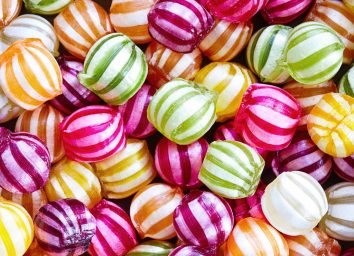This One Simple Diet Tweak Fuels Lasting Weight Loss, Expert Says

Losing weight sits at the top of New Year’s Resolutions lists, no matter what the year. And though there are many (many!) different ways to drop unwanted—and unhealthy—pounds, few of them are sustainable for the long-term.
But I know a method that will help you shed stubborn weight and keep it from creeping back on. And there is a very good chance you haven’t tried it before.
When I was doing research for the nutrition program I developed, I was stunned to learn that one simple diet tweak can make an enormous difference when it comes to energy levels, sleep quality, skin health, and yes—weight loss: Eliminating added sugars. (Related: 15 Underrated Weight Loss Tips That Actually Work.)
So What’s an Added Sugar?
Added sugars are sugars that are added to foods and beverages when they are processed or prepared. (Naturally occurring sugars, on the other hand, are ones you’d find in fruit and dairy).
The American Heart Association recommends that men consume no more than 150 calories in added sugars daily, and women 100. But most of us are eating more than twice that amount—every single day!
Studies show that eating so much sugar significantly raises your risk of life-shortening obesity, diabetes, and cardiovascular disease.
Beyond that, over-consumption of sugar can wreak havoc on your mental health.
The Evil Siblings of Added Sugars
To unmask the true culprits behind excess weight and poor health, I have to mention two related nutritional enemies: refined carbohydrates and artificial sweeteners.
Refined carbs (also known as simple carbs) are processed foods that have been stripped of nutrients. For example, to make white bread, manufacturers remove the outer coating of a wheat kernel (known as the bran) and the germ—the good stuff. Only the inner endosperm is then ground into flour. Refined carbs can spike blood sugar and accelerate hunger pangs, leading to weight gain, so ditch them in favor of healthier complex carbs.
Artificial sweeteners, which usually come in brightly colored packets, are touted as the healthier alternative to sugar, but they come with a laundry list of potential health issues—including weight gain. Yes, that diet soda you think is helping you stay slim may be making you fatter.
How to Spot—and Cut—Hidden Sugars
Food manufacturers use technology to produce foods that are inexpensive to make but irresistibly appetizing. Scientists engineer these products to have just the right amount of sweetness to make you crave more…and more…and then sneakily slip it into almost everything we eat—bread, yogurt, salad dressing, pasta sauce, peanut butter, pizza and tons of other things lining supermarket shelves.
In Sugar Free 3, I teach you exactly how to read a nutrition facts label and ingredients list so that you can spot the sneaky places sugar hides. There are over 60 aliases for sugar, so you need to know what you’re looking for. Here’s a tip to get you started: Flip over the food package and look for the nutrition facts. Under “Total Carbohydrates,” you may see another line that says “Added Sugars.” You want that to read “0.” Not all food makers have to list added sugars so transparently, but thanks to new label laws, eventually, they will have to come clean.
For 9 more ways to maximize weight loss, read this right now.








